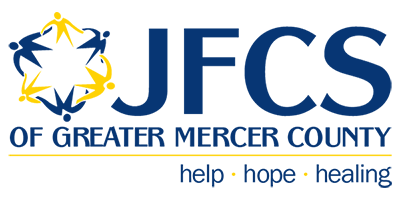 We are all dealing with grief now—loss of normalcy; loss of connection; fear of economic toll, nervous anticipation of the future. For those in our community who are mourning the loss of a loved one, the grief is intense and even more isolating because we do not have the traditional community supports to provide some sense of stability. As holiday times approach, the Empty Chair has become the Empty Table and the Empty Room. What are some tools that can give you the support you need?
We are all dealing with grief now—loss of normalcy; loss of connection; fear of economic toll, nervous anticipation of the future. For those in our community who are mourning the loss of a loved one, the grief is intense and even more isolating because we do not have the traditional community supports to provide some sense of stability. As holiday times approach, the Empty Chair has become the Empty Table and the Empty Room. What are some tools that can give you the support you need?
A VERY IMPORTANT REMINDER: Everyone experiences grief in his/her own way. There is no right or wrong. Give yourself permission to do whatever feels right, and please be gentle with yourself.
Suggestions for Handling the Holidays:
- Nothing is normal for anyone this year. Think about what has helped you since the loss of your loved one; don’t do what you think you should but what feels right to you.
- Connect, connect, connect—to your friends, your family, your community (of faith or otherwise). Take advantage of technology old and new: telephone calls, email, text, Facetime, Skype or Zoom. JFCS will provide resources for virtual Passover seders, as well as other services and celebrations, in a future post.
- Tell your family and friends what you need, whether or not they ask. Don’t be shy—this is not a time for false reticence, you ARE strong but you still need others for support and help.
- Think of rituals that have meaning for you and turn to them as often as necessary—these can relate to the holiday or not. There won’t be a big family meal this year (that would have raised other issues for you as you grieve), but you can make dishes that you love or that bring back happy memories. You can share recipes, perhaps using technology as you go about your preparations, or sing songs together or tell stories of holidays past. Or you can do none of the above.
- Turn to prayers or readings from the holiday that have special meaning for you. Repeat them as often as needed for consolation.
- Sing special songs relating to the holiday as you wash your hands (for 20 seconds). In fact, listen to or make music as much as you can. Music leads to activity in multiple parts of the brain where we process emotion, memory, awareness, and attention. It can help short-circuit sadness by using these brain areas to bring up happy emotions and joyful memories as we tune our attention to the song. We also know that music can bring strong emotions and heartfelt tears to the surface, which can help us process the complex emotions we are experiencing at this time.
NOTE: Memories, with their sweetness and their pain, are important tools for healing. You know that your loved one will never be forgotten. Relationships don’t end with death but, with time, they will become transformed. And there is nothing wrong with crying.
- Breathe. Focus on all five of your senses, perhaps with particular reference to the upcoming holiday. The sweet smell of a favorite food, the texture of special clothing, tablecloths or a reclining pillow, the sight or feeling of one small item related to the holiday that warms your heart, the clink of glasses of wine. Memories of holidays past will, of course, be painful without your loved one. Try to access the positive ones.
- This is the time for spring holidays, with their connection to nature. Go outside as much as possible, if you can. Savor the sights of flowering trees or plants. Smell the smell of fresh green grass. Move your weary muscles. Remember that we are all part of the cycle of life.
Beverly Rubman, Chaplain


